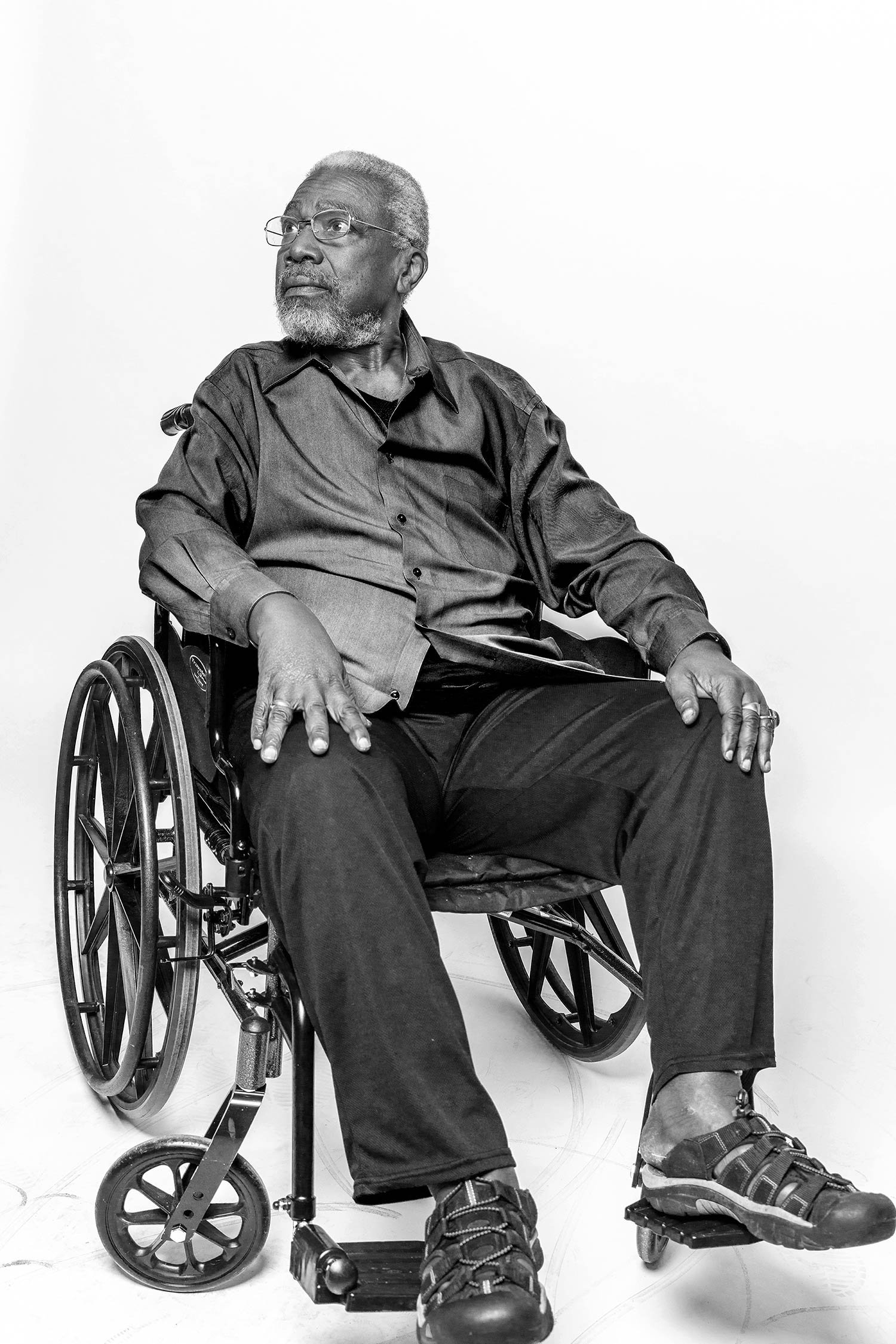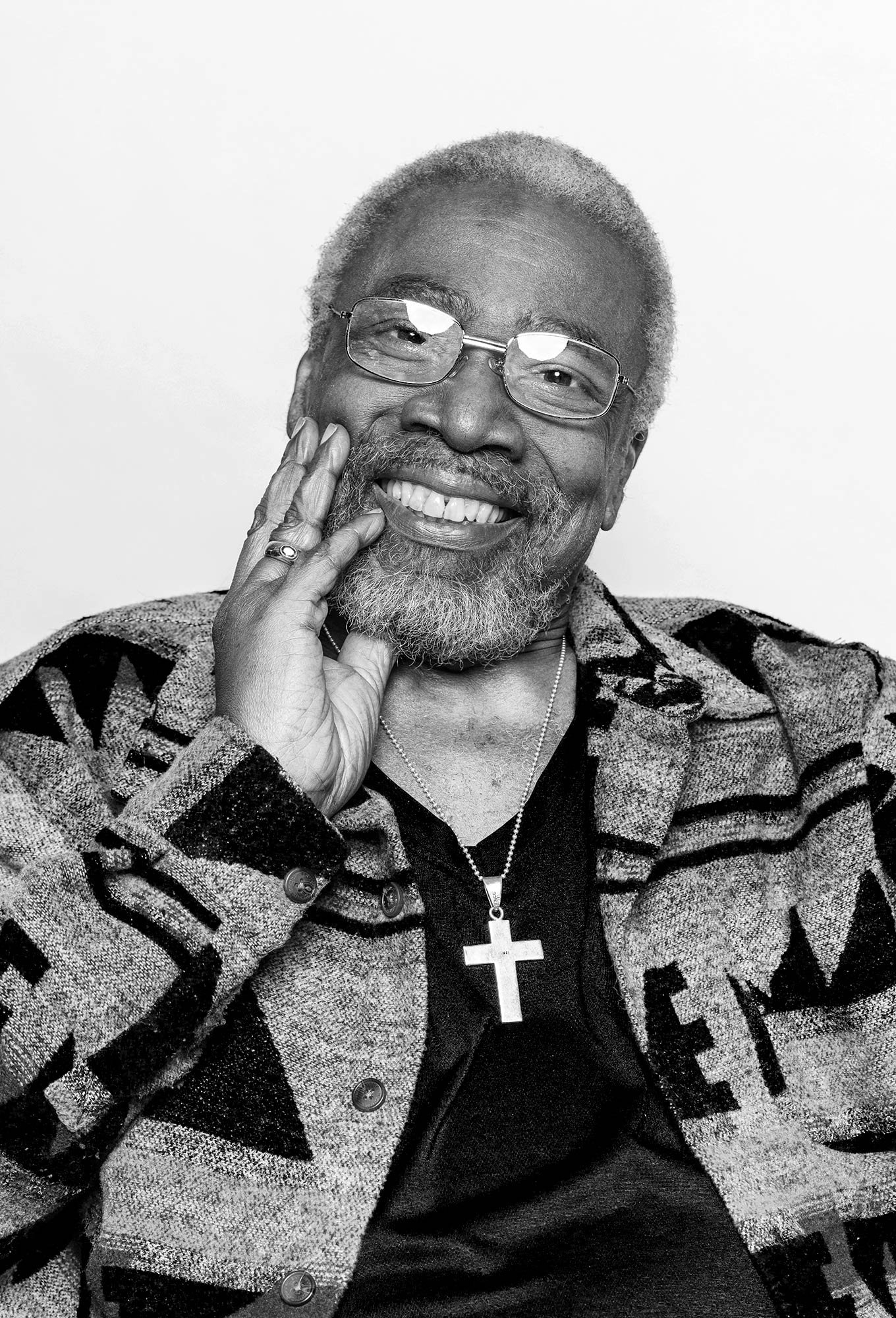
Father and Grandfather, Fatherhood Services Coordinator, PTBi Community Advisory Board Member
– Gary Thompson

I am at the point in my life where I have to step out there and do something. What motivates me is the youth. To see them, to see that their lives have changed to the point where things I took for granted as a teenager aren’t available to them. To ensure that we check in with them so that their mental health and their status as young adults are not hindered by these unbelievably difficult current events.
The stuff going on right now is hard to stomach. Layer everything else going on with the pandemic and our government leadership. I’m talking about homophobia, xenophobia against Asian immigrants, and the damn stupid crap about abortion. I mean it’s a lot.
What motivates me is children, my children, my son, my grandchildren. I am blessed to have a 26-year-old son with a solid job and a granddaughter in her second-year of college. As a parent and grandparent, my job was to raise a child. I had one and that was my one job and I took it seriously because I lost one. Life is precious.
I don’t like to talk about it and I don’t talk about it because it was so long ago. But my first child’s preterm birth and subsequent death deeply, deeply affected me.
During my sophomore year at Ohio State, I was doing well in school when I met someone. The terminology we would use today is that we had a “hookup.” Through that hookup, a child was conceived. That child from the beginning was a difficult pregnancy. We were both 18 years old — didn’t know what the fuck we were doing. The pressures of going to college and for me, being the second-generation to go to college, there was a lot of pressure on both of us. What was really, really difficult was that no one would help us.
We went to people. We weren’t a couple, but we tried to take responsibility as young 18-year-olds to do what was right. I was left out of the picture: “Well, you need to talk to blah blah blah. You can’t be here,” they said to me. It was almost as if I was the enemy. As if I had done something wrong and messed up this girl’s life.
I saw a family therapist. I saw him but that was a joke because we were smoking cigars and watching football, and that was it. They were all like “Oh, you know, you’re young so you’ll get over it.” I was treated very poorly and it was not a good experience.


She carried the child for seven and a half months, and she gave birth prematurely to our daughter. I took it seriously — the child was in an incubator for about a month. She was being sustained but then her lung collapsed and she passed.
Now, that person and I stay in contact but even that is difficult because we never got anything, we never got any support. We’ve gone on, we’ve moved on, got married to other people, and later in life, I came out. But there were never any services for me at all. To see what we have now is amazing compared to what I went through — and there are millions of stories like that, particularly for college-aged students of color. That’s my story.
I officially retired from Alameda County Public Health Department about 18 months ago (February 2020). At the time before I retired, I was doing some of the most meaningful work that I’ve ever done in my career. I was blessed to be given an opportunity to develop, plan, and strategize the Alameda County Fathers Corps, a partnership with our health care agencies, social service agencies, the public health department, and First Five of Alameda.
Typically, when men — and particularly young men of color — interact with county public systems, they do so through a negative door, such as child support or something wrong.
The goal of the Alameda County Fathers Corps is to inform and build awareness about the need for more father-centered services. I was doing that for about 10 years, and we successfully integrated father care goals and objectives. We now have a standard of practice in the county where they look specifically to address the needs of fathers, particularly in the area of supporting them to be the best fathers they can be.


I was born and raised in New Jersey. I grew up in the Civil Rights Era, an era with great social change that was, for the most part, positive. It is eye opening for me now to again see what is developing in terms of race relations and to gain this new knowledge that preterm birth has impacted African Americans even more than crime and poor neighborhoods and lack of education.
Historically, birthing was much more a communal thing. Here in America, we’ve become more individuated and dependent on others to do something that was celebrated as a family or a tribal event. The script was flipped for us and we started to embrace a European-dominated approach to childbearing. As part of the PTBi Community Advisory Board (CAB), myself and others recognize this problem and are working to address decolonizing our birth practices as well as other issues.
What’s wonderful is to see the evolution of this work through engaging fathers, recognizing that we cannot solely work with the mom: Mom is the key and will always be the center and the child will always be the center. But those concentric circles around those individuals need to be strengthened. Fathers need to understand their role and also be champions of change.
When my son was born, I couldn’t let him go. They had to take him away. It was so funny because I cried and cried and said, “I’ll never let you go.” And that’s my commitment to my job, to my son, to my grandchildren. That I am not the perfect man, I am not the perfect parent, but I am going to do my best. And it is my responsibility to keep them safe and I wish I knew then what I know now.
Not because I could have saved my first child, because her life was compromised. If there is a god or goddess or whatever, I know that she wasn’t meant to live so her time on earth was short. I’ll tell you, though, that it made me feel like I had something to give.
I don’t want anyone to be criminalized for trying to love — and I was trying to be an adult and trying to love. And I never got anything for it other than disdain. I don’t want that to happen to anyone. When it came to my children, my son, I love them probably too much. I’ve given them probably too much. But I don’t want anyone to have experienced what I experienced, because no one should be treated like that.
Out of all that came a strong parent and a good man who continues to put his family first.